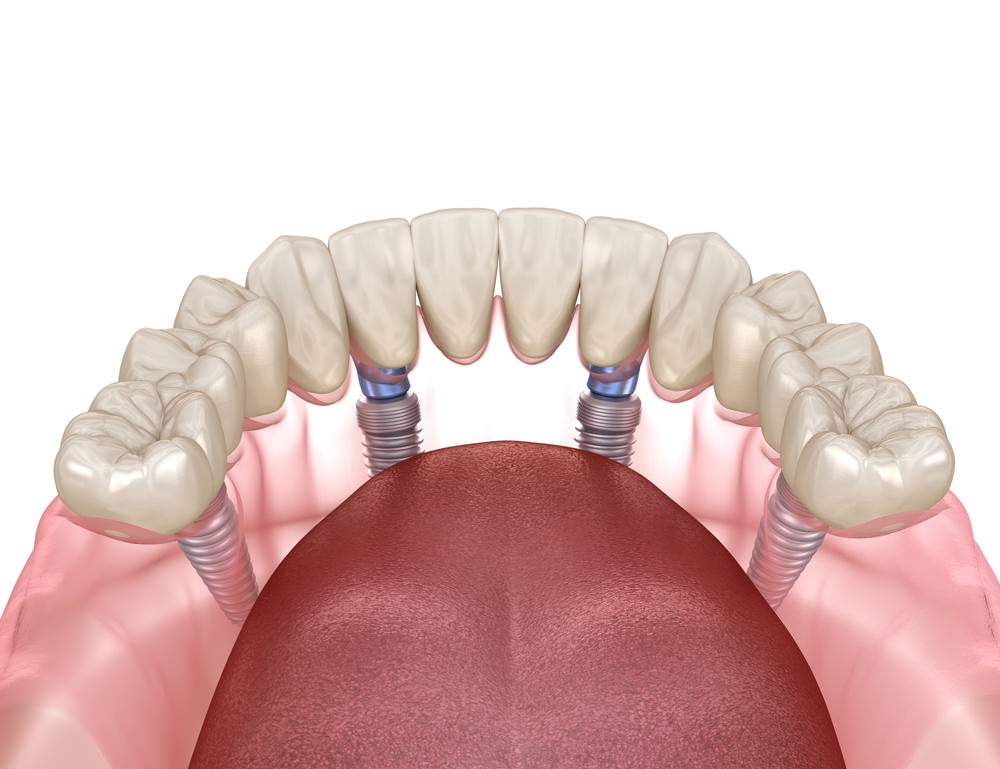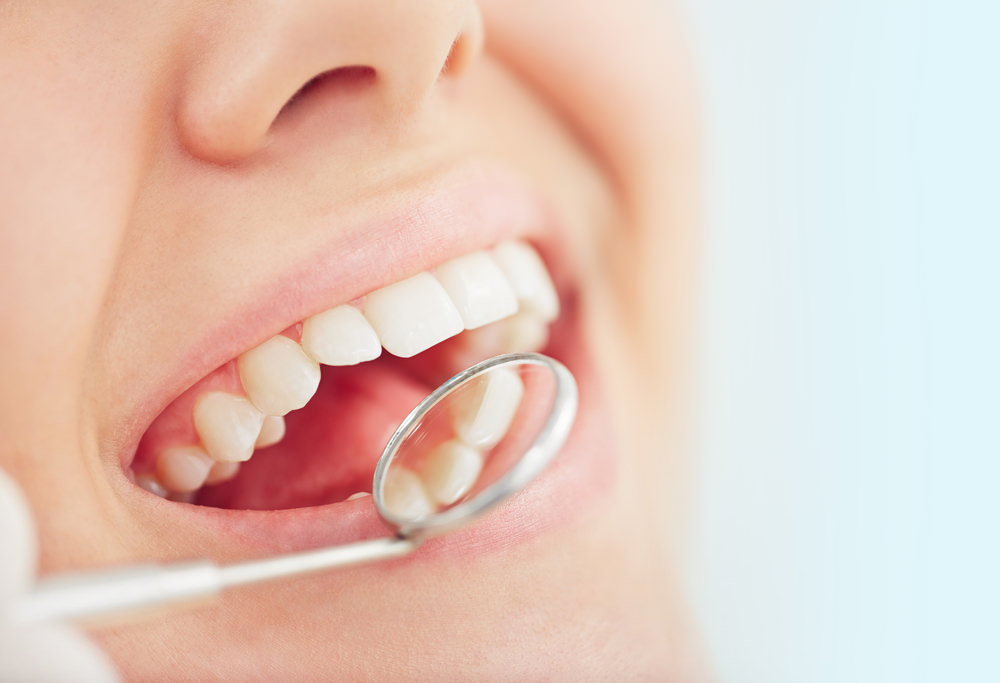Dental Veneers: Your Ultimate Guide
Dental veneers are stylish and have been around for a long time. They’re one way to achieve a stunning smile most people desire.
But are they worth it?
Whilst looking great is an attribute, it’s not the only useful reason to have veneers.
What we discovered was that veneers can help you protect your natural teeth while making you feel great about yourself.
This dental guide will explain the process, what preparation you’ll need before and after, as well as discussing the common veneer types out there.
Jump to Contents
- What are Dental Veneers?
- Are Veneers Permanent?
- Veneers in More Detail
- Types of Veneers
- Temporary Veneers
- The Dental Veneer Process
- Veneers: Before and After
- Tips to Help You Prepare for Your Dental Visit
- Veneers and Pain
- Post Veneers
- Is There Such a Thing as Cheap Veneers?
- Are Veneers Expensive?
- Are Veneers Worth It?
- Learning to Smile Again
- Are There Any Alternatives to Veneers?
- Crooked and Overlapping Teeth
- Veneers and Sensitivity
What are Dental Veneers?
The best way to describe dental veneers is like comparing it to cement rendering on a house.
It’s that thin protection you would ask a builder to put on the outside of your house for aesthetic reasons. It’s the same thing for a tooth.
A thin piece of material gets applied to the outside, making it look cleaner, brighter and sometimes whiter.
Dentists will often go around on the biting surface as well. This protects the tooth and gives it a little bit of extra strength.
- Composite
- Porcelain
- Zirconia
Composite veneers are typically completed within a dental surgery while porcelain is laboratory-based and constructed by a dental technician.
But which is better I hear you say?
Your budget will have a lot to do with your decision on what dental veneers you choose.
If money isn’t an issue, then porcelain veneers are a far better product, designed by hand and made to last.
But let’s take a closer look at both.
Composite Veneers
The best way we can describe them is that they’re like plastic; a form of plastic anyway.
Your dentist will build up your tooth by adding this composite material, bit by bit.
A special ultraviolet light will be used to harden the surface of the veneer.
Composite veneers are much cheaper. But they don’t have the strength and durability of the other veneer materials.
It is important to note that they often are a temporary measure and should be intended for the interim.
Porcelain Veneers
Superior to composite in almost every way.
Your dentist will use a trusted dental technician who makes the porcelain veneers by hand.
As you can imagine, this process is very time-consuming and detailed.
Both patient and dentist demand perfection so having an experienced technician is essential.
A fantastic point to make about Porcelain veneers is they don’t stain, where composite does stain and can fracture.
Porcelain will keep the same shape, colour, texture and shine. Made to last, becoming a part of who you are.
My longest case was 25 years.
Dr V
Zirconia Dental Veneers
In recent years a new material called Zirconia has launched onto the dental market. It is a fascinating product! Says Dr V.
Zirconia veneers are built and designed by computer technology which is state of the art.
From a cosmetic dentistry point of view, matching two front teeth is a very hard thing to do.
The computer does such a great job you cannot tell, which tooth is the veneer and, which tooth is not.
“Aesthetically it is wonderful to see, and we can get some amazing results”. Dr V.
The zirconia product is so thin there is a minimal reduction of your tooth which is a great thing as well.
It’s so precise, and the materials that are currently coming out of the laboratory is blowing my mind.
Dr V
Temporary Veneers
A composite material is used for temporaries as it gives you a sound platform to make an informed decision.
Decisions about colour are the primary concern for many people looking to get veneers.
Composite doesn’t have as good a shade as the zirconia or the porcelains types, but you do get an understanding of what it looks like.
The Dental Veneer Process
Once you have decided which type of veneer and colour you would like, an impression of your teeth is taken.
The impression or mould will then be used to create those perfect veneers of yours.
With regards to Porcelain material, the dental technician who works in a laboratory will use porcelain powder and mix it with a special modelling liquid to build the veneer.
As it sets, the technician heats up a furnace to about 800 degrees, which hardens the veneer.
So you can imagine, constructing it in the laboratory is much harder thus more expensive but far more durable.
Dental veneers usually take between 1 to 3 weeks to make, just depends on how busy the laboratory is.
While they are in the lab, your dentist will need to prepare the area and remove enough tooth structure so that the veneer will fit.
This part of the process must be correct. Otherwise, it will look like you’ve got something stuck on top of your teeth.
While preparation is carried out, temporaries are put on to your teeth. This gives you an idea of what they’re going to look like. It also protects your teeth in the interim.
On the odd occasion, it is possible for your dentist to apply veneers without even touching the tooth.
However, most of the time 1 to 3 millimetres of enamel is enough so that bonding occurs.
If you remove too much enamel structure, it is likely that you’ll lose bonding strength.
I don’t remove much because bonding is best on enamel.
Dr V
Veneers – Before and After
Having healthy gums, in general, is very important. It is easy to assume that the veneers are just put on, and all shall be fine. It isn’t the case!
Preparation and dental hygiene are weighed heavily on the mind of your dentist.
A study conducted in 2012 found the relationship between your dental health and restoration of teeth “intimate and inseparable”.
During the initial stages, they’ll check to see if you are a valid candidate. What they’re looking for is the health of the gums.
When your gums and teeth are healthy, they are more likely to accept your new veneers.
Bleeding and red gums can be a sign that something is wrong, hampering the process and making the job even more difficult.
The gums will accept the veneers when you have what’s called the biological width or zone.
Simply stated, this is where the bone, gum and teeth relate to each other; the in-between papilla we call it.
#1 Routine Dental Checkups
Majority of the professional dentists out there will stress that you see your dentist for routine checkups every six months.
It is a great way to stay on top of gum related problems, not to mention saving money in the long run!
#2 Breathe Properly
When someone breathes through their mouth, their saliva dries out.
Their first line of defence, which is saliva, is nowhere to be found.
When your mouth is dry, the gums react. They react in such a way where inflammation starts and bleeding can occur.
It’s crucial that you learn to breathe through the nose.
Dr V
Breathing this way slows everything down and calms you too! Yoga is an excellent example of this practice in action.
#3 Communication
If you’re not sure what colour you want or if the whole veneer thing is right for you, this is the time to speak up.
Someone once said in the distant past “honesty is the best policy”. Well, this is true my friends.
Honesty will provide your dentist with the opportunity to create a solution for you.
Speaking to your family and friends can also be a great help when deciding on dental veneers. I guess it depends if you want their input in the first place :).
The other thing to think about is your expectations.
These can be difficult to understand if not discussed in detail before going down the veneer path with your dentist.
Running through all your options can mean the difference between happiness or anguish.
#4 Dental Hygiene
It is one of the most essential parts of dental health. Flossing and brushing your teeth correctly is crucial.
As mentioned above, the gums belong to the biological zone, and if they are not healthy, the underlying bone will start to suffer.
Dentists must have what’s called “an isolated dry field” … AKA the area of your gums. Dental hygiene is a must!
#5 Disclose Taking Drugs
Always inform your dentist if you take prescription drugs for blood thinners as it is difficult to stop the bleeding in the gums.
Veneers And Pain
When the preparation has been a success, there shouldn’t be pain.
But, amending things such as alignment of your teeth or removing bone, there’s going to be the associated discomfort.
The front of the mouth is not such a big deal and with new technology such as a laser, healing time and pain is reduced.
Painkillers can assist you but make sure you speak to your dentist first.
Post Veneers
The mind is a funny thing. Should it question the change in your mouth, it can take up to four to six weeks for you to accept what has occurred.
If for some reason you don’t like the look, your dentist can adjust the veneer if need be.
Dr V explains; “All we do is take the veneers off, find out exactly what the problem is.”
Just remember, depending on your dentist every change costs money. Letting yourself adjust naturally for the first couple of weeks might be a good idea.
Brushing And Flossing
It’s crucial you are educated on how to keep the area clean.
A healthy dental hygiene routine is the same whether you have natural teeth or veneers.
Veneers will protect the majority of the tooth surface, but you can still get decay around the gum margin.
Other Things To Consider
The type of food that you’re eating can have a massive impact on your health and healing.
Sugar is the main culprit for most of the diseases in the mouth.
That’s why your diet is so important! Aim to stamp out sugary drinks, cakes and fast foods. I know it’s hard, but you’ll see the difference and so will your dentist!
Hydration Is Also Crucial
If you can keep your entire body hydrated it will do wonders for the health of your mouth.
Drinking plenty of water (recommended) will give your mouth its biological area to keep it clean of its own natural ability.
To Recap
- Floss regularly
- Brush consistently
- Watch your diet
- Drink plenty of water
- Composite
- porcelain
- Zirconia
Now the ‘cheapest’ is definitely the composite.
A dentist who creates composite veneers in her or his surgery, that’s their time. They don’t use anyone else, so the cost is lower than say porcelain.
With porcelain, the expense relates to time and expertise of your dentist and their dental technician.
Anything to do with Labs, the cost of anything dental does up 10 fold. It’s very technique sensitive.
The laboratories vary depending on the experience of the technician and the type of work that they’re producing.
I’ve had my technician for 30 years, and she’s perfected the art of it.
Dr V
Dr V informs us that “I’ve seen them even go up higher in some of the Hollywood dental surgeries. You could be expected to pay tens of thousands of dollars.”
Are Veneers Expensive? What Are The Costs?
They can be, but there are options for most budgets.
Composite types are the least expensive of the bunch. A lot of the time it’s for the interim, so the process to make them is quick, saving the dentist time and you, money!
For those people who aren’t sure about getting veneers, composites are a great option for the short term. They provide a way to try it so you can see how you feel about them.
Composite Veneers
The cost is usually between $200 – $500 per veneer
Porcelain Veneers
The price range for porcelain veneers is between $800 to $2000 per veneer.
The computer-generated zirconia veneers can range from $1000 upwards.
Veneers can also vary in price, depending on what state you live in.
Our Dental Cost Calculator can help you work out what the average Dental Costs for Dental Veneers are?
Are Veneers Worth It?
In our opinion, yes they are. But you need to know what you want.
Veneers are usually created to mask aesthetic problems such as:
- Discolouration
- Alignment issues
- Crooked teeth
- Overlapping teeth
- Gapped teeth
- Worn teeth
There’s also the functional aspect as well – you’re able to keep those teeth of yours a lot longer because the veneers protect them.
Psychological impact can be extremely great also. Deciding to have dental veneers can change how you feel about yourself.
The most significant thing is the confidence in your smile, where you don’t need to be hiding anything. That you can smile boldly.
Dr V
Learning to Smile Again
Smiling should be an easy thing to do, right?
Unfortunately for many, it can be a difficult thing to achieve.
The act of smiling can harbour negative feelings causing you severe emotional distress.
In the dental world, there are many options to help you overcome this internal torture.
Opting for veneers is a good way to significantly improve your smile.
But having the tools so to speak is only part of the journey. Learning to smile is another aspect that can be overlooked.
Dr V Explains
I’ve had patients who didn’t have smile muscles. I had to say, this is the way you smile. Now you have to go out, and you have to practice.
Sometimes it takes up to six weeks for somebody to actually learn how to smile.
If you are still toying with the idea but not 100% sure if veneers are the way to go, here is some positive feedback from Dr V
I’ve had veneer patients for 30 years and I haven’t had one patient in that time come back and tell me, “I’m not happy. Most of the time they cannot even believe the before photos because they’re so used to their new look.
Are There Any Alternatives to Veneers?
For a permanent choice, dental veneers are the way to go.
Depending on what you are concerned about, there are alternatives.
Most people want white teeth. So if you are in this boat, teeth whitening can give you good results for the short term.
We say short term because teeth whitening is affected by lifestyle choices. These lifestyle choices require you to maintain your whiteness, regularly.
However, if you are a person who doesn’t feel good with white teeth, then veneers are an excellent option.
With the help of your experienced dentist, you can choose a colour shade that’s right for you.
There are also a lot of things on the market at the moment that you stick on and you take off. Which is like wearing dentures and these are not great, as Dr V explains;
“I can’t see the value of that in the long run because you could get food caught up underneath it. You could end up getting decay.
Anything that is transitory like that, I can see a new set of problems arising with it”.
Braces are another alternative that works to align your teeth.
The good thing about braces is if you are happy with your teeth and their colour, you don’t necessarily need veneers.
Crooked and Overlapping Teeth
Not only is this a problem from the aesthetic point of view, but crooked and overlapping teeth also make it very difficult to clean.
Crooked teeth can have alignment issues, making it almost impossible for you to reach those lower areas of your teeth.
Gum disease around these teeth is not unusual.
A dentist with long-term vision will see the implications of crooked teeth and what could happen down the track.
Dr V advises her patients to put their teeth straight before getting veneers.
When the teeth are aligned, it gives you a much healthier mouth and a greater ability to maintain it and keep it that way.
Dr V
Veneers and Sensitivity
With your natural teeth, If you’re over brushing and using a hard toothbrush or an electric you will wear that enamel away, causing sensitivity.
You have a finite quantity of enamel, so brush softly!
Unfortunately, the inside of the tooth is yellow. So the harder you brush, the yellower your teeth become.
Once you get veneers put on, that’s gone. The sensitivity’s gone.
My Personal Experience with Veneers
I had susceptible, sensitive teeth when I was younger.
Mostly due to my age and vigorous oral hygiene habits in the past, my teeth were so sensitive that I couldn’t bite into ice cream or anything.
But now I have no such issues whatsoever.
Looking good in photos is one thing, but from a health point of view, my teeth have improved an enormous amount.
Having veneers myself, I can see what my patients are about to go through as well. I can inform them from a professional standpoint as well as my personal experience.
Conclusion
Dental veneers are an excellent way to get that crisp, clean designer smile.
Like many things in this world, there is no substitute for quality.
The good news is that not all veneers are expensive and there are options for all budgets.
As there are many dentists out there, it pays to shop around.
So our recommendation to you is to pick a dentist that has a lot of experience in this field.
This recommendation will save you countless hours of pain and hard earned money.
Wanting to get veneers but not sure if you’ve got the right information? Ask Dr V!
By Dr. V
Created at January 16, 2018, Updated at January 25, 2025




























